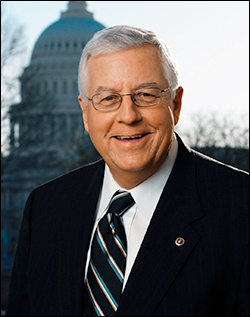By Jim Ellis
 May 10, 2019 — Often in political polling, asking respondents about their second choice on a ballot test is quite telling. The Morning Consult firm polls regularly and they are the only prominent pollsters so far in this presidential campaign to consistently ask the second-choice question.
May 10, 2019 — Often in political polling, asking respondents about their second choice on a ballot test is quite telling. The Morning Consult firm polls regularly and they are the only prominent pollsters so far in this presidential campaign to consistently ask the second-choice question.
Their latest national survey conducted over the April 29 through May 5 period and involving 15,770 respondents who are registered self-identified Democratic voters, or those who lean to the Democrats, found former Vice President Joe Biden pulling away from the pack of candidates, claiming 40 percent support. In a distant second place is Sen. Bernie Sanders (I-VT) who had 19 percent.
None of the other candidates even reached double-digits. In third position is Sen. Elizabeth Warren (D-MA) with a preference figure of just eight percent. Following closely is California Sen. Kamala Harris at seven percent, and South Bend (IN) Mayor Pete Buttigieg who posted six percent support. Former Rep. Beto O’Rourke (D-TX) is next with five percent. All others have three percent or less.
After the initial question, those choosing one of the top five finishers were then asked who they would support if the candidate they originally named was not in the race. This provides a further way of gauging the depth of a candidate’s strength.
The Biden supporters predominantly break toward three candidates with Sen. Sanders being the chief beneficiary, getting 31 percent of the Biden first choice voters. Sen. Harris receives 13 percent, with Sen. Warren getting 10 percent.





